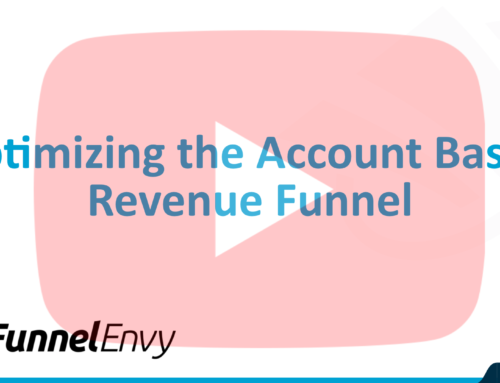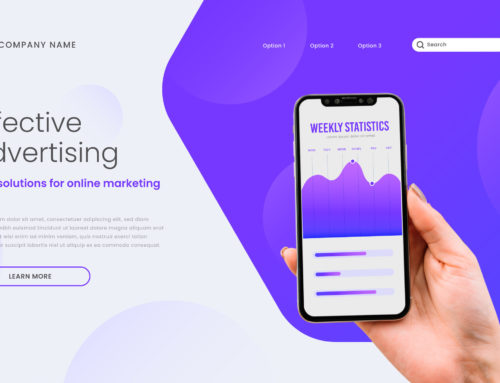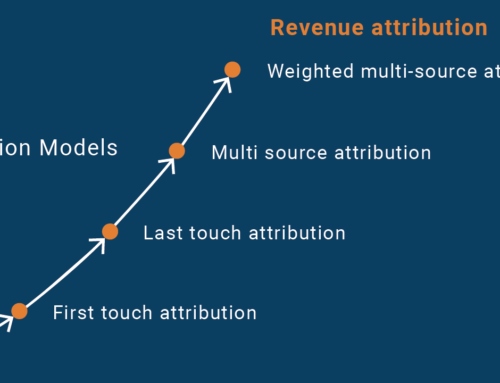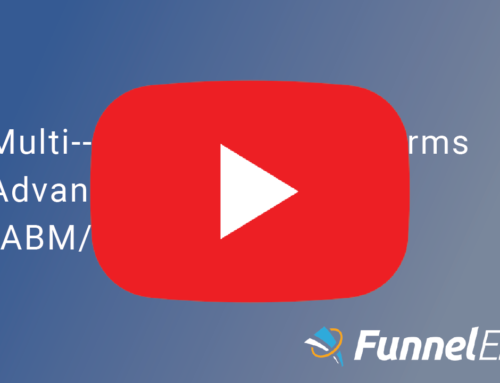Every company, from the fresh solopreneur to the long established multinational, understands the need for high levels of online traffic.
The internet has become the first stop on a consumer’s journey to finding the right product. Savvy marketers understand this and the need for attracting as much traffic as possible. After all, you can’t run accurate A/B tests or optimize your materials if you don’t have the traffic to understand a trend.
But there’s one big problem. Which method of online marketing brings the highest levels of traffic?
You’ve read about the business built through PPC advertising, the social media queen who gets a hundred thousand visitors from Facebook and Twitter, and the startup who grew their audience with a slew of targeted guest posts.
Where do you start?
If you follow all of their advice, you’ll stretch yourself too thin and make little to no progress. So what should you do?
In the words of Ron Swanson, “Never half-ass two things, whole-ass one thing.” Choose one method, focus all of your attention and time on it, and you’ll see greater gains and higher profits.
The only question left is which method is going to be best for you. There’s no one size fits all, and you’re going to have to make the selection based on your individual needs.
With that in mind, here’s a quick breakdown of four popular traffic driving techniques with a focus on what businesses they’re best suited for.
 Photo credit: Death to the Stock Photo
Photo credit: Death to the Stock Photo
Social Media
I’ll let you in on a little secret. I hate social media with every fiber of my being. I deleted my personal Facebook for over two years and despite having now reactivated my account, rarely use the service for personal reasons.
But I’m in the minority. The number of active social media users is huge and represents an incredible market for us to explore.
Facebook has over a billion users, Twitter has nearly 300 million and there’s a slew of other platforms that people can’t get enough of. What’s even more appealing is how easy it is to get the social media ball rolling.
Simply figure out which platform is best for your business, customize your landing pages and content and share as little or as much as you want.
You’re only going to get out what you put in, but in comparison social media is one of the easier (and cheaper) methods that every business can employ. You’ve probably had enough of me blathering on about why you need a social media strategy, so I’ll leave it there and get onto the pros and cons when it comes to social media traffic acquisition.
Pros
It’s Where Everyone is – Think about all the people you know, now think about how many of them are not on social media. Very few, right? Now think about how often those people check their social media accounts. Often it’s daily. There’s a huge market out there and social media is an easy way for you to connect with your prospects. Don’t miss out on a golden opportunity.
Audience Research – The key to good conversions is to properly understand your audience and social media is a great way to get a deeper insight. Most big platforms come with their own analytics suite allowing you to see what resonates well with your audience and what sort of content they enjoy.
Virality – The fabled achievement all companies pursue. The Viral post. Huge exposure and a gigantic surge in traffic. It’s difficult to achieve but next to impossible without social media.
Cons
Can Take Away from Conversions – The problem I have with SM is it taking the focus off your own site. Your recent post on Facebook garnered 6,000 likes, but those likes don’t necessarily translate into traffic or conversions. I’ll take 10 conversions over 6,000 likes any day of the week.
Lack of Followers – A social media page is only as strong as its followers. When you’ve got none you’ll obviously get no traffic. You’re shouting your message to an empty room. You can use a service like Tweetadder to grow your followers but even that isn’t a guarantee.
Virality – The virality of your posts is a double edged sword, great when it’s positive, catastrophic when it’s not. Have a complaint go viral and watch your traffic plummet.
Who Should Use Social Media
Everyone. A Hubspot survey shows that 92% of marketers valued social media was an important part of their marketing in 2014. That many marketers can’t be wrong.
You can set up an account and start getting your message out there in a matter of minutes (spend longer to optimize your account though). The fundamentals are easy to grasp but you’ll need to dedicate quite a lot of time if you want to master the ins and outs of social media marketing.
Guest Posting
Guest posting is a traffic referral strategy that doesn’t get much love on the corporate digital marketing scene, but really should. It’s an incredible way to get your name and message in front of a targeted, well established audience. Most sites that allow guest posts permit a byline which will act as a high value backlink to your own site or a specific landing page.
If you’re not convinced as to the efficacy of the method I’ll point you in the direction of Danny Iny of Firepole Marketing. Danny started as a solopreneur who eventually built a seven figure business off the back of a prolific spate of guest posts. The most interesting part of Danny’s business isn’t his rise to fortune but how the connections he made through guest posting still aid in his business to this day.
Pros
Great Network Builder – The connections you make with other webmasters and business owners through your guest posts has a long lasting effect. You’ll of course get lots of referral traffic but you’ll also create relationships which can be invaluable when launching future products. Get in touch with the connections you’ve made, offer them affiliate marketer status and have them promote your products to their audience. Traffic now, profit later.
Exposure and Trust – Brand recognition is incredibly important . When you’re first starting out it can be difficult to gather a following of loyal fans on your own, so why not hijack those of a similar company. Propose an awesome white paper or guest article for them and you’ll get your name and message in front of the right demographic. Being published by a company or site with a large following also helps build your own authority. Win-win.
Awesome Backlinks – We’re going to get onto SEO a little later but the backlinks you can gain from guest posting (as long as you’re targeting high authority sites) work incredibly well to raise your standing in the SERPs.
Free – Probably the most appealing aspect of guest posting is the cost. Free. The only cost is time. Target the right sites and you might even earn a little bit of money for your guest posts.
Cons
Time Consuming – Guest posting can be quite a time consuming task. You’ve got to find a site to publish on, sleuth out the editor’s details, craft a relevant pitch and finally write the actual article. Compared to other methods it’s considerably more labour intensive.
Never a Guarantee – Just because you’ve identified a great potential guest posting site there’s no guarantee your article will be published. The editor could deem your pitch unsuitable or the final article might not be up to standard. There’s little guarantee which can result in a lot of wasted time.
Distractions – Every minute you spend finding and creating content for someone else is time not spent furthering your own products. Sure you’re raising the potential for high volumes of traffic, but if you’re not spending time on developing the final product then you’ll struggle to actual convert that traffic.
Who Should Guest Post?
Guest posting isn’t a good choice for product based companies. If you produce physical products you’re better off using press releases and review sites to drive traffic.
It is however the ideal method for those who create information products.
Use your guest posts to demonstrate your knowledge, build trust and convey the value of the product you’re selling. Some base their articles on the general subject area whilst others have been known to release chapters or excerpts from a final product as a guest article/free sample.
PPC
PPC advertising is based on understanding the wonderfully complicated world of keyword research. It’s primarily the playground of the well established business, those who are just starting up often don’t have the steady cashflow to allow for a decent PPC campaign.
Of course that’s not always the case, you can run a successful PPC campaign on a low budget. You’ll just have to target less competitive keywords and be a little more conservative with your bids.
Whether you’re working for a large company with the budget to spare, or are trying to get your own business off the ground, PPC isn’t easy. You’ve got to constantly monitor every stage of the process and optimize any areas you’re falling short in.
If you’re not keeping a close eye on your campaign, then you may as well be throwing your PPC budget away.
Pros
Exposure – Getting your advertisements placed on associated search results drastically helps increase exposure. If organized well, you should have your adverts bringing in traffic that might otherwise have been completely unaware of your business.
Pay What you Use – One of the great things with PPC is that you only pay for what you use. You’ll only pay for the clicks that you attract which, if you’ve worked out your budget correctly, should help minimize the chance of wasting your budget.
Immediate Results – Unlike any of the other methods on this list, PPC brings immediate results. You don’t have to wait for the audience to shift attention or focus; your results could be in front of them once you’ve finished your setup. It’s also an extremely agile method, which can be changed and amended quickly to suit developing needs.
Cons
Expensive – PPC has the potential to become very expensive. If you’re basing your bids on search engine results you can end up paying a lot for each click. Before you know it your budget is wasted on very few clicks. Avoid bidding wars for better placement whenever possible.
Lack of Trust – Social media and guest posting both go a long way in building trust and pre selling the traffic you attract. PPC on the other hand is an advert, nothing more. There’s no trust building involved, and you’ll have to ensure that the copy your adverts link to is going to do a great job of converting.
Very Complicated – PPC isn’t easy. There’s a lot that needs to be considered from keyword research, regional display of your advertisements, bidding and budgets. Mess up in one area and your whole campaign can fail. Whilst it can attract prospects immediately it’s not a quick fix and requires a watchful gaze and ongoing optimization for best results.
Who’s Going to Get the Most Out of PPC?
Generally speaking large companies with a healthy budget will get the most out of PPC advertising. You’ll also want someone who can dedicate a lot of time to the research and ongoing optimization of your campaign. If you’re not staying on top and fixing any issues that arise, you’re wasting your budget and any progress you’ve achieved.
SEO
SEO is a term I treat with a healthy amount of skepticism and caution. It’s one of the most popular digital marketing channels but there’s just so much bad advice out there.
The name implies that you’re aiming to make your content as search engine friendly as possible. This is what led to the era of keyword stuffed content and spammy backlinks. Thankfully, as the algorithms have developed to find content that’s actually useful, there’s been a shift in content creation to focus on providing content that web users actually want.
Of course there’s a little more to good SEO than that, but at the very least you should be producing content that your audience is going to enjoy and find useful.
Pros
Longevity – If your SEO game is on point you’ll reap the benefits for a long time to come. Properly optimized SEO can deliver a continuous flow of traffic that’s highly targeted to your niche which is going to have a higher chance of converting.
Greater Reach – Like PPC advertising there’s the potential to attract plenty of prospects who might have been otherwise unaware of your business. According to Conductor 54% of web users discover new sites through SEO. Definitely one of the best ways to grow your audience.
Growth – SEO is incredible at contributing to your businesses growth. Once you’re ranking well you’ll have huge exposure which will draw in plenty of new, organic prospects for you.
Cons
Slow Burn – PPC has an immediate effect and social media can be relatively quick in helping you see gains, SEO on the other hand takes a long time to provide a decent ROI. The time it takes to get your content indexed and highly rated can take days, weeks or even months.
Algorithms! – If you’re approaching SEO with a solid white-hat strategy, then you shouldn’t have too much to worry about when Google roll out their next algorithm update. That doesn’t mean there’s no risk though. After the last major update, a large number of SEOs panicked after seeing their rankings drop. There is the possibility that when an update is released, you’ll have to re work your strategy to regain your lost ranking.
Ranking – Your ranking in the SERPs is going to be a constant issue when focusing on SEO. Unfortunately, your ranking is never guaranteed. You might have made it to the first page of Google, but that doesn’t mean you’re going to stay there. You could be knocked down a few places by a competitor, or find yourself penalized by a new Google update. It’s a real battle to maintain your position.
Who Should Focus on SEO?
SEO should be a consideration for any online company. Getting a higher ranking in the SERPs is one of the best ways for you to grow your business. The extent to which you focus on SEO is up to you. If you want to get the most out of your SEO tactics, I’d recommend hiring someone who is a specialist on the topic.
Acquiring traffic is only a primary stage in increasing sales. You’ll need to optimize the landing pages or pop ups you’re directing traffic to for the greatest conversion rates. If you don’t then you’re going to have a lot of traffic that simply won’t convert. Spend as much time customizing for conversions as actually attracting the traffic, they’re two sides of the same coin.
So what traffic driving channel has best served you and which other channel are you considering giving a shot?





